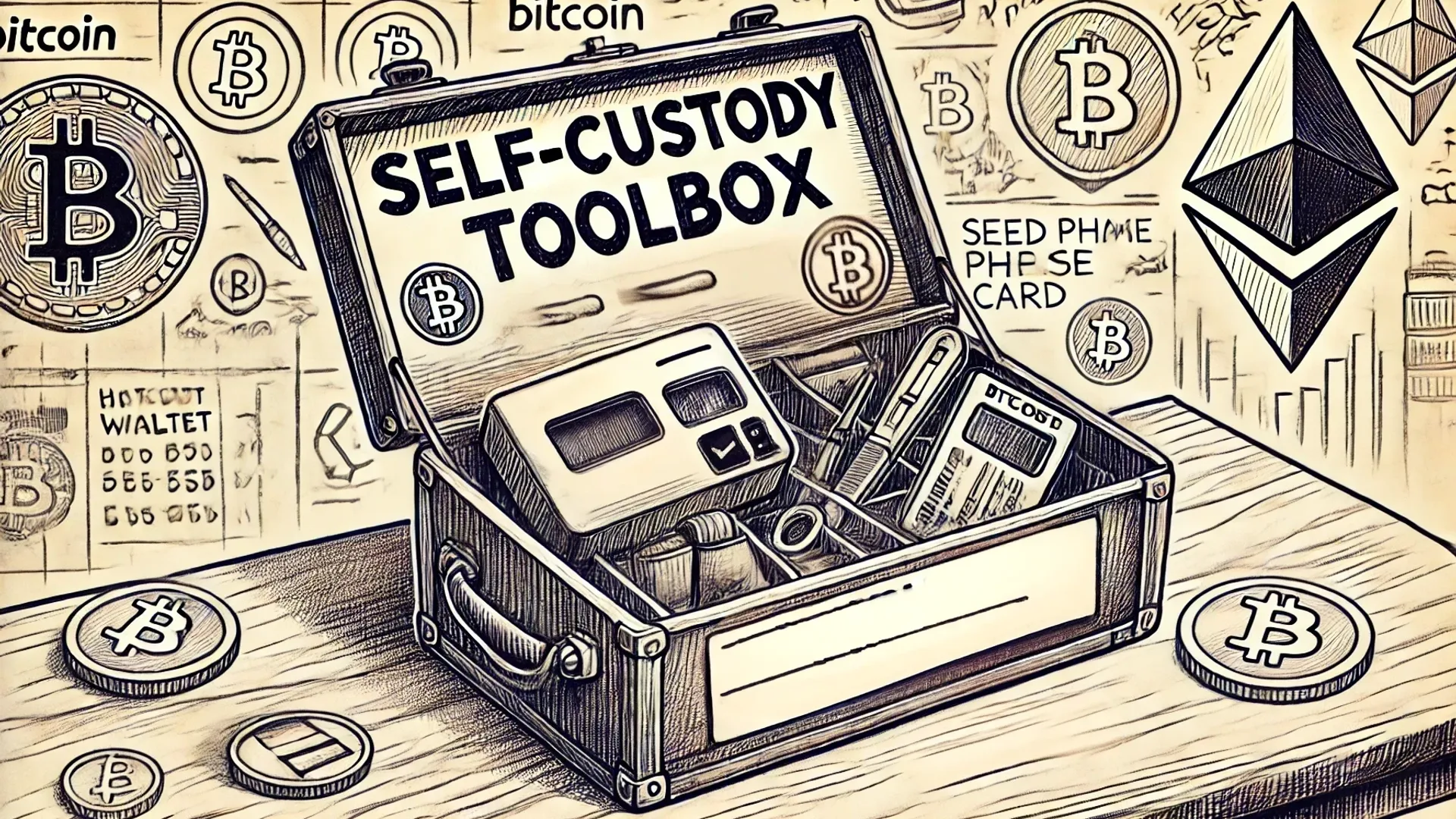Bitcoin at its core is a tool for financial independence. And there’s one rule in the world of crypto that isn’t just advice; it’s a survival skill: “Not your keys, not your coins.”
It’s a bit cryptic (pun intended), so let’s unpack it. What’s self-custody? And why is it essential?

What is Self-Custody?
Self-custody is about taking direct ownership of your Bitcoin and other crypto holdings. Instead of relying on third-party platforms like exchanges or custodial wallets to hold your funds, you manage them yourself. This means you’re in control of the private keys that control the ownership of your crypto. Imagine putting all your valuables in a safe—but instead of keeping the key, you hand it to someone else. Would you do that? Never. So why would you let someone else have the key to your Bitcoin or crypto? Self-custdy means that you keep the keys to your safe.
How Does Self-Custody Work?
Cryptocurrencies are stored in digital wallets, but these wallets don’t hold your coins directly. Instead, they store your private keys—the cryptographic code that grants access to your funds. Self-custody means you control these keys and no one else can access your funds without your permission.
There are a few ways to do this:
- Hot Wallets: These are a convenient but less secure way to manage your private keys. Hot wallets are typically mobile apps or desktop wallets which connect to the internet. While convenient, they are more vulnerable to risks like hacking, phishing attacks, and malware because they remain connected online. They are fine for small amounts, but not your life savings.
- Hardware Wallets: These provide maximum security as your private keys are retained securely on a device which does not expose these to the internet and greatly minimizes the risk of theft or a hack. For example, during the collapse of the Mt. Gox exchange, many users who relied on hardware wallets instead of leaving their funds on the exchange were able to protect their Bitcoin from being lost. Popular hardware wallets include devices like Ledger, Trezor, or Coldcard.
- Multi-Signature Wallets: Advanced wallets that require multiple signatures (typically from multiple hardware wallets) to authorize a transaction, adding an extra layer of protection. These wallets are particularly beneficial for businesses, families, or individuals managing large amounts of cryptocurrency who want to reduce single points of failure. For example, a multi-signature wallet ensures that even if one key is lost or compromised, the funds remain secure.
Why Should You Care About Self-Custody?
Let’s face it—trusting someone else with your money has never been foolproof. Crypto is no exception. Here’s why self-custody is non-negotiable:
Not Your Keys, Not Your Coins
This sums up the risk of leaving your crypto in someone else’s hands. When you store your Bitcoin on an exchange or custodial wallet, they control your funds. If they get hacked or collapse (like Mt. Gox or FTX), your funds go down with them. Self-custody puts you back in charge. You own the keys. You own the coins.
Financial Independence
Banks, ETFs, exchanges—they all come with fine print. Self-custody lets you bypass the middleman. Your money, your rules. No waiting on a third party. No “temporary restrictions” on withdrawals.
Lessons from History: Executive Order 6102
A powerful example of why self-custody matters comes from history: Executive Order 6102. In 1933, the U.S. government required citizens to turn in their gold, confiscating privately held gold in bank lockets. If your Bitcoin is stored on an exchange or is in the form of a centralized structure like an ETF, the government could take similar action, freezing or seizing assets through centralized intermediaries. Bitcoin, when self-custodied, is different. No one can freeze it, seize it, or control it.
The Not-So-Fun Part: Challenges of Self-Custody
Holding our own keys comes with a few challenges:
- Managing Private Keys: If you lose your private keys or recovery phrase, you lose access to your funds. There’s no “forgot password” safet net.
- Balancing Convenience and Security: Hot wallets are user-friendly but less secure. Hardware wallets and multi-signature setups require more effort to manage.
The trade-off? A little learning curve for a whole lot of peace of mind.
The good news is that with the right education and tools, anyone can confidently and securely take control of their funds through self-custody.
So, How Do You Start?
Good news: taking control is simpler than you think. Here’s your game plan:
- Understand Private Keys: Learn why private keys and recovery phrases are essential.
- Pick a Wallet That Fits You:
- Take our 2 minute quiz to see which hardware wallet is right for your needs. Hardware wallets range from beginner-friendly, which are simple to set up and use, to some wallets which offer more advanced features but require more complex setups. All hardware wallets we cover offer maximum security for their respective use cases.
- For long-term storage, hardware wallets remain the gold standard for security. Learn more about hardware wallets.
- For even more advanced security, especially when you want to secure large balances, explore third party hosted multi-signature wallets like Casa or Unchained Capital.
- Lock Down Your Recovery Phrase: Write it down (not digitally) and store it in a safe place. This is your lifeline if you lose access to your wallet.
Bigger Than Bitcoin: Why Self-Custody is About Freedom
Self-custody isn’t just a feature of Bitcoin—it’s the point. By holding your own keys, you’re doing more than securing your assets. You’re rejecting financial gatekeepers and reclaiming your freedom.
Because in a world of hacks, collapses, and uncertainty, owning your keys means owning your future. And that’s a future worth investing in.
Take our personalized hardware wallet quiz to get a recommendation based on your specific needs and preferences.
2-minute quiz — no personal info needed